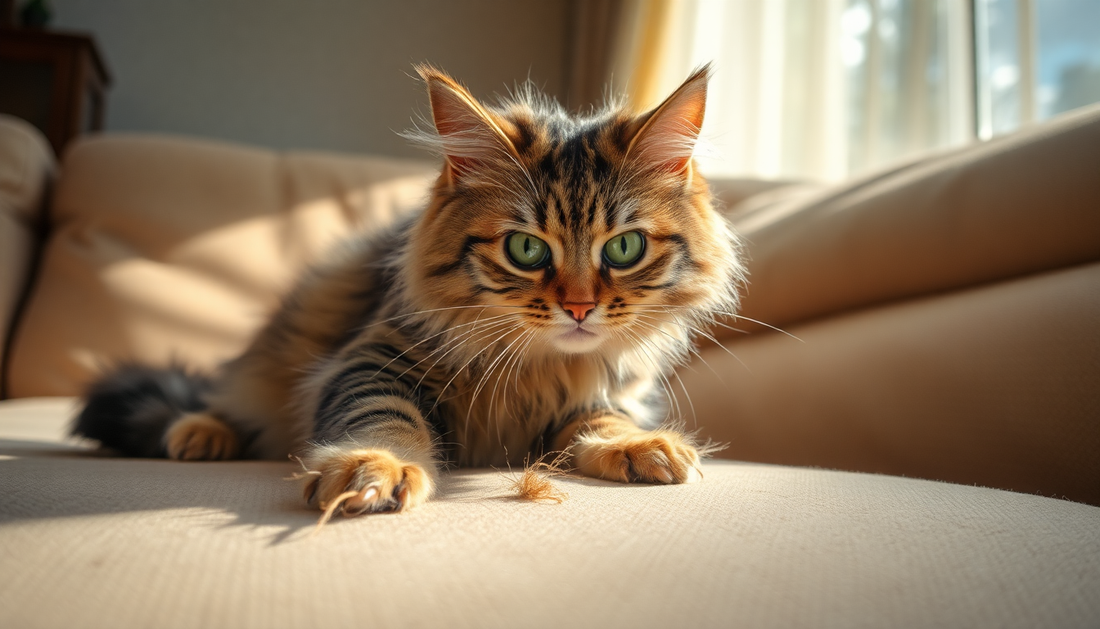
Recognizing the Subtle Signs of Stress in Cats: A Guide to Keeping Your Feline Friend Happy and Healthy
Share
As pet owners, we all want our furry companions to be happy and healthy. But when it comes to cats, it's not always easy to recognize the signs of stress. Unlike dogs, who often display their emotions more openly, cats can be masters of disguise when it comes to their inner turmoil.
At Spot Pet Supply, we're dedicated to providing reliable, everyday pet care solutions. That's why we've put together this post to help you identify the subtle signs of stress in your feline friend, so you can take action to keep them feeling their best.
Understanding Feline Stress
Cats are naturally independent and solitary creatures, but that doesn't mean they're immune to stress. In fact, cats can experience a wide range of stressors, from changes in their environment to underlying health issues.
Stress in cats can manifest in both physical and behavioral ways, and it's important to be able to recognize the signs early on. By addressing stress promptly, you can help prevent it from escalating and potentially leading to more serious health problems.
Subtle Physical Signs of Stress in Cats
One of the most common physical indicators of stress in cats is a change in their grooming habits. If your cat suddenly starts over-grooming or neglecting their coat, it could be a sign that they're feeling anxious or overwhelmed.
Another subtle physical sign to watch for is a change in your cat's body language. Stressed cats may hold their ears back, their tail low or tucked under, and their pupils may appear dilated. They may also exhibit a tense, hunched posture.
Digestive issues, such as vomiting or diarrhea, can also be a sign of stress in cats. If your feline friend is experiencing these problems without an obvious underlying cause, it's worth considering stress as a potential factor.
Behavioral Indicators of Stress in Cats
Behavioral changes are often one of the first signs that a cat is experiencing stress. If your usually affectionate cat suddenly becomes aloof or aggressive, it could be a sign that they're feeling anxious or overwhelmed.
Cats under stress may also exhibit changes in their sleeping patterns, either sleeping more or less than usual. They may also become more vocal, meowing or yowling more frequently.
Another common behavioral indicator of stress in cats is a change in their litter box habits. If your cat starts urinating or defecating outside of their litter box, it could be a sign that they're feeling stressed or anxious.
Identifying and Addressing the Causes of Stress
Once you've recognized the signs of stress in your cat, the next step is to identify the underlying cause. This can be a bit of a detective work, as there can be a variety of factors that contribute to feline stress.
Common causes of stress in cats include changes in their environment, such as a new home or the introduction of a new family member or pet. Cats can also become stressed by changes in their daily routine, such as a shift in feeding or playtime schedules.
Underlying health issues, such as pain or illness, can also be a source of stress for cats. If you suspect that your cat's stress is related to a medical condition, it's important to consult with your veterinarian.
Helping Your Cat Cope with Stress
Once you've identified the cause of your cat's stress, the next step is to take action to help them cope. This may involve making changes to their environment, such as providing more hiding spots or vertical scratching posts to help them feel more secure.
You can also try incorporating calming activities into your cat's daily routine, such as interactive playtime, gentle petting, or the use of pheromone diffusers or sprays. These can help to reduce your cat's anxiety and promote a sense of calm.
In some cases, your veterinarian may also recommend the use of supplements or medications to help manage your cat's stress levels. It's important to work closely with your vet to determine the best course of action for your feline friend.
Conclusion
Recognizing the subtle signs of stress in cats is an important part of being a responsible pet owner. By being attuned to your cat's physical and behavioral cues, you can take proactive steps to address their stress and help them maintain a happy, healthy lifestyle.
At Spot Pet Supply, we're committed to providing the resources and support you need to keep your feline friend thriving. Whether you're looking for practical tips or solutions to common pet concerns, we're here to help. Shop with us today and join us in our mission to support pet welfare organizations and make a difference in the lives of animals.
